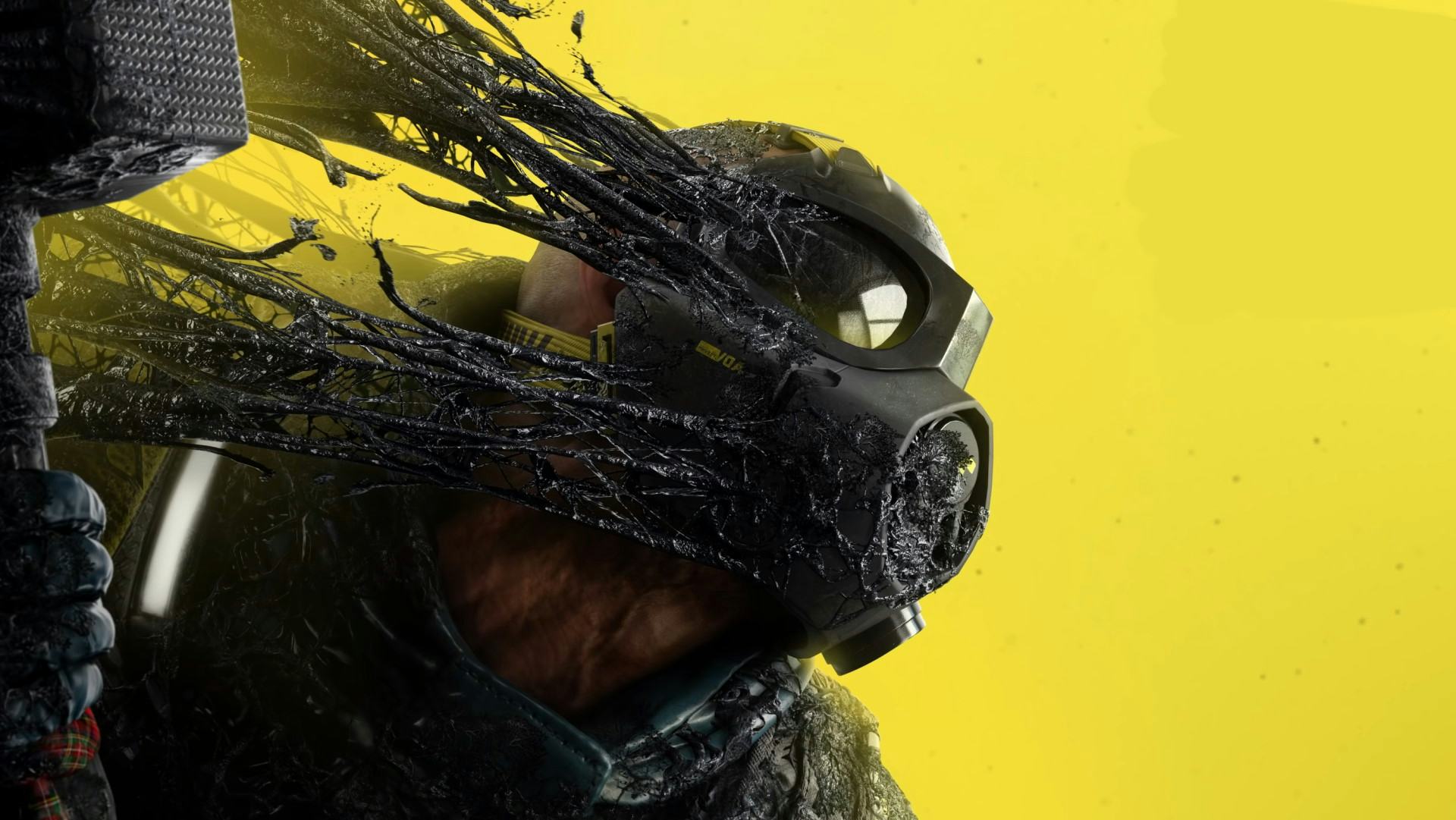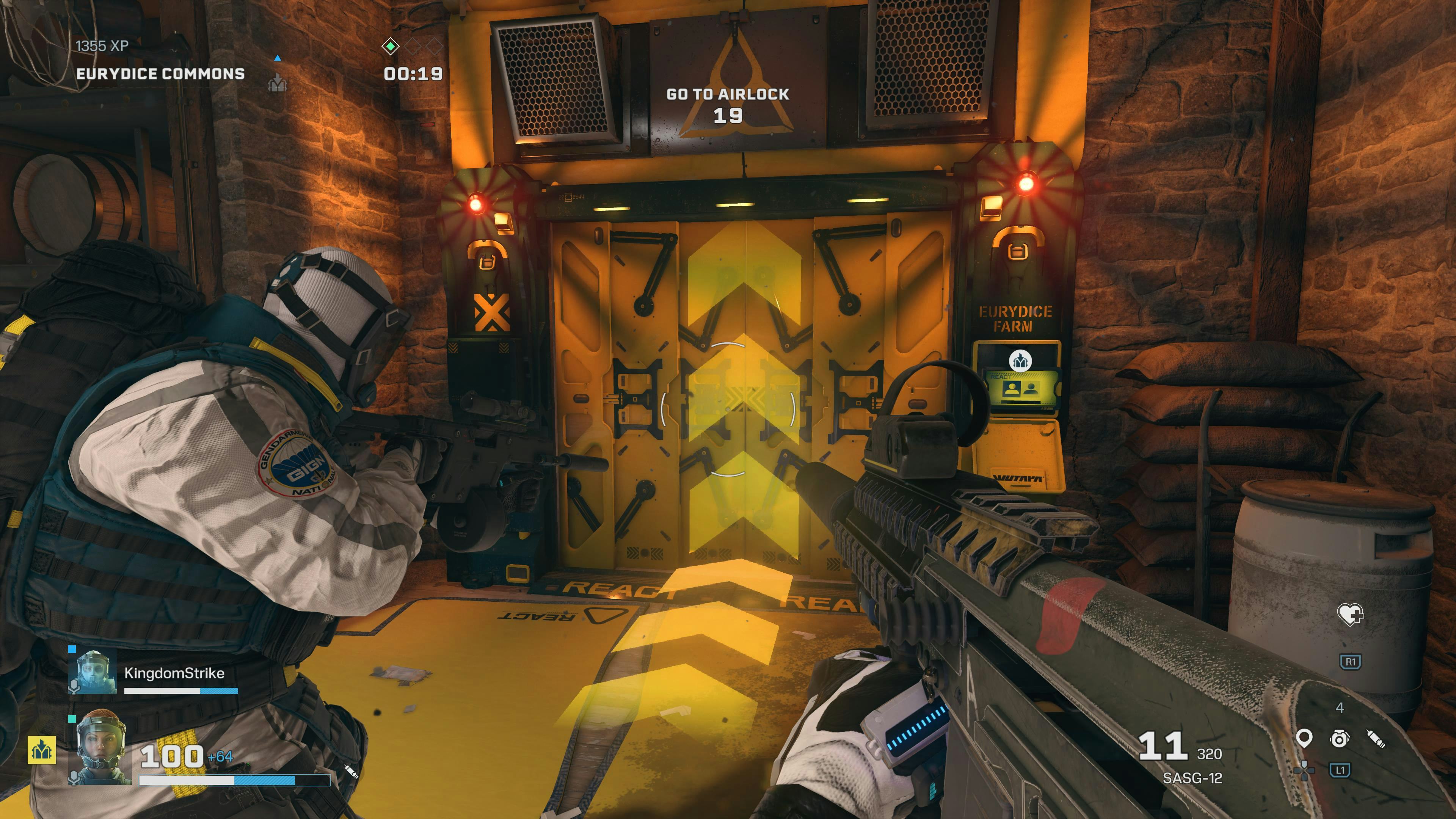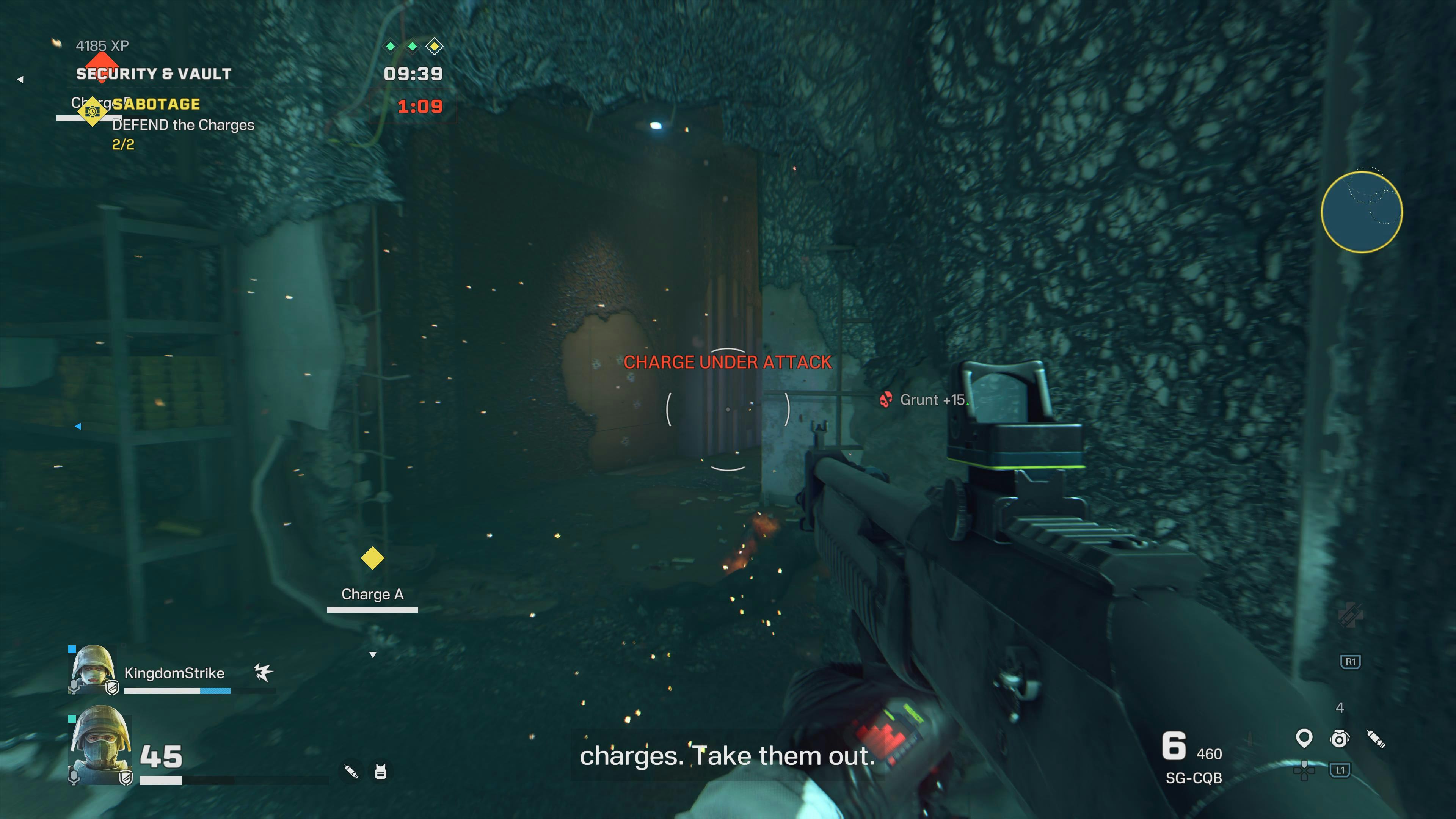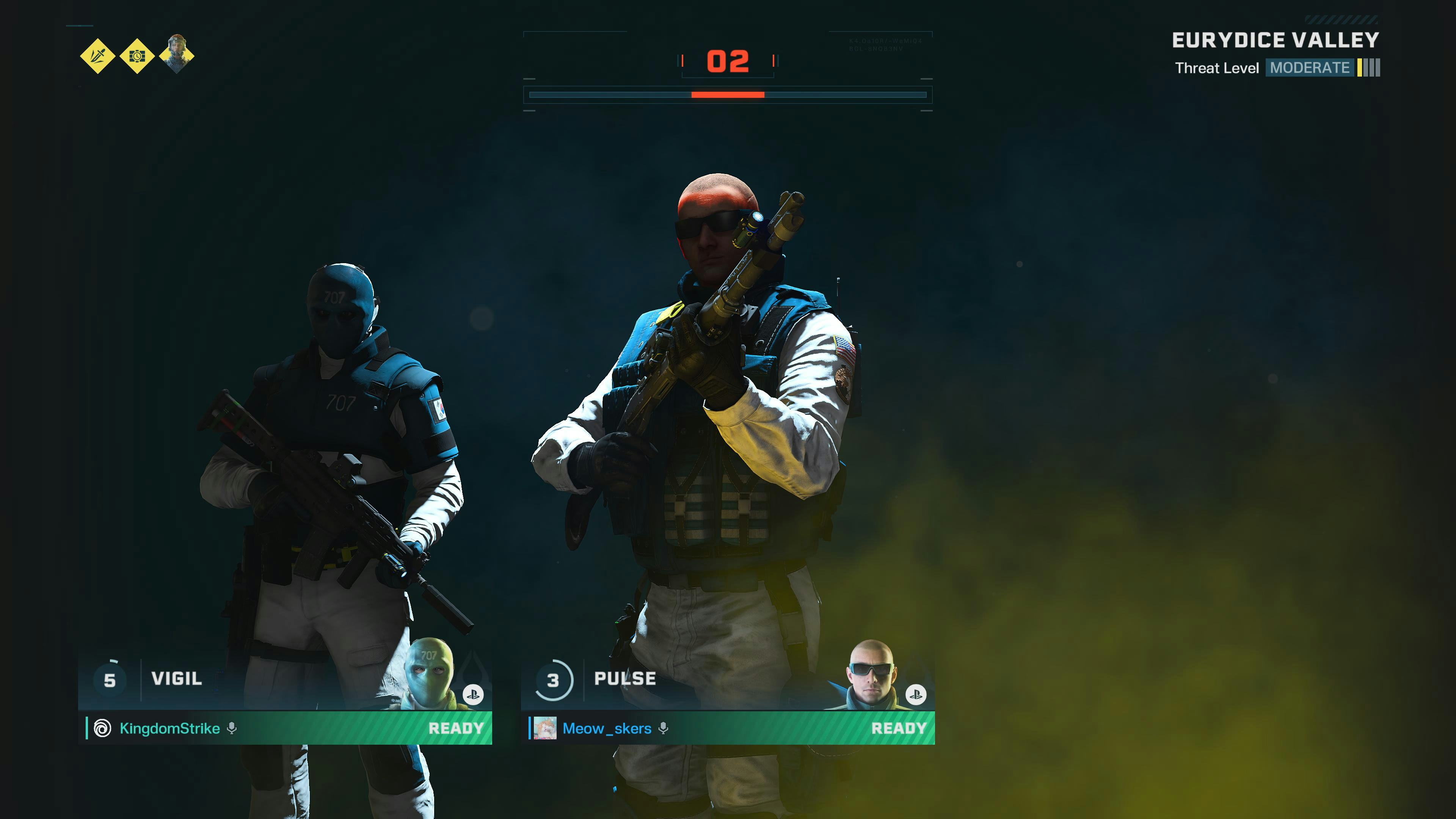
It should have been a match made in heaven.
Ubisoft has positioned Rainbow Six Extraction as a cooperative spin on one of the most beloved shooters of the last generation. Nevertheless, it feels like the company’s most generic title in recent memory, taking almost none of the best features from its 2015 predecessor Rainbow Six Siege, instead watering it down to a stiff, repetitive, and soulless experience.
Rainbow Six Extraction throws you and your friends against the Archaeans, a deadly group of parasitic aliens that are attacking Earth. The game is split up into several cities and various linear zones within them, each featuring procedurally generated stages with a handful of objectives for you to complete.
The main issue is that after you’ve played for a couple of hours, things become repetitive — there are only a small number of possible objectives available across each stage. It’s a lot of “go here, press the button, and defend the objective” type of missions that feel much more like a side mode for a larger game.
No surprises

One mission requires you to plant explosives and defend them before they detonate, while another sends you on a quest to find and destroy different alien nests. Video games typically recycle mechanics and ideas like these, but more satisfying experiences than this one disguise them in such a way that makes it tough to tell you’re doing the same things over and over again. Extraction doesn’t even try to disguise it.
Unlike Siege, which has nearly infinite replay value due to its competitive formula, Extraction gives you few reasons to keep checking back in. Even after unlocking new Operators, gadgets, and stages, the overall driving force feels shallow.
Extraction’s narrative is almost non-existent and there are no memorable characters that propel the story forward. Beyond that, the gameplay feels decidedly separated from the overarching plot, with a vague explanation of “research” as your main motivation for completing missions. Not every co-op first-person shooter needs a heartfelt story, but there should be something that keeps the player engaged, and Extraction is lacking in that department.
The stages are roughly the size of maps from Rainbow Six Siege, so there isn’t much in the way of surprises, even though each area is procedurally generated. It’s as if Extraction is attempting to be a dungeon crawler at times, as you’re tasked with moving to different subzones (AKA stages), with the promise of XP if you complete objectives. But there’s no real incentive to keep visiting different subzones since there are no unique rewards tied to individual stages. One of the only reasons to visit other zones is to break up the monotony, which just goes to show how little substance there is in Extraction.
Cheap shots

Gameplay feels a lot like Siege, at least in terms of movement and mechanics. Though, the similarities mostly stop there, as the tactical qualities are thrown out the window. This is mostly because the enemies are predictable and there aren’t many ways to tackle certain objectives. The game wants to make you think you have lots of choices, but in reality, it’s all an illusion.
The moment-to-moment gameplay involves you and up to two other players going through the timed stages as you complete objectives. Each stage is littered with alien parasites that don’t pose much of a threat individually but can quickly overrun you if you don’t exterminate them swiftly.
There seems to be a major disparity in difficulty in this regard, as the ramp-up doesn’t feel as gradual or fair as you’d expect. If you take out each enemy slowly, there’s almost no threat, but if you’re unlucky enough to be in the middle of a mission that throws endless waves of aliens at you, it’s easy to get overwhelmed quickly. Enemies can get in your way and make it impossible to move, which feels unfair and frustrating.
You can extract from a mission at any given time and the game tells you which objectives are ahead. That means you can literally avoid objectives you don’t like whenever you want. While it’s great to have the option, the bigger problem is that Extraction has objectives that are so bad we opted to never play them again.
Smooth Operators

Much like Siege, Extraction includes a variety of Operators, but this time, there are only 18 to choose from (as opposed to the over 60 in Siege). These characters have special abilities and weapons that help mix things up, at least slightly. One Operator, Pulse, is fantastic, with the ability to see Archaean nests and collectible items through walls. Meanwhile, the Doc Operator can heal himself or other players, making him a desirable choice.
Though the Operators all feel distinct, they aren’t enough to cause much of a break in the repetition overall. Since the objectives all blur together, the Operators don’t have the same chance to shine like they do in Siege. What’s the point of having so many intriguing Operators if there isn’t much of a reason to switch between them? Some feel useless compared to others and it's disappointing the Operator you choose doesn’t seem to matter much overall.
One highlight of Extraction is the way it handles death. If you’re eliminated, the Operator you were playing as must be rescued from that particular stage before they can be used again. This forces you to experiment with other Operators in a way that makes sense within the context of the game’s narrative. This goes way beyond a simple “game over” screen and instead motivates you to stay alive as you work your way through the stages. Dying is penalized, but its consequences are never irreversible. Sadly, this unique idea barely stands out amid the sea of generic design decisions.
Extraction is a game that was clearly stuck in development hell for a reason. Ubisoft eventually came to the realization that it was time to get this game out the door, and the result is a jumbled pile of ideas you’ve seen before, executed in a wildly uninteresting way.
5/10
Inverse reviewed Rainbow Six Extraction on PS5. It’s available for PlayStation, Xbox, and PC on January 20, 2022.
INVERSE VIDEO GAME REVIEW ETHOS: When it comes to video games, Inverse values a few qualities that other sites may not. For instance, we care about hours over money. Many new AAA games have similar costs, which is why we value the experience of playing more than price comparisons. We don’t value grinding and fetch quests as much as games that make the most out of every level. We also care about the in-game narrative more than most. If the world of a video game is rich enough to foster sociological theories about its government and character backstories, it’s a game we won’t be able to stop thinking about, no matter its price or popularity. We won’t punch down. We won’t evaluate an indie game in the same way we will evaluate a AAA game that’s produced by a team of thousands. We review games based on what’s available in our consoles at the time. And finally, we have very little tolerance for junk science. (Magic is always OK.)







